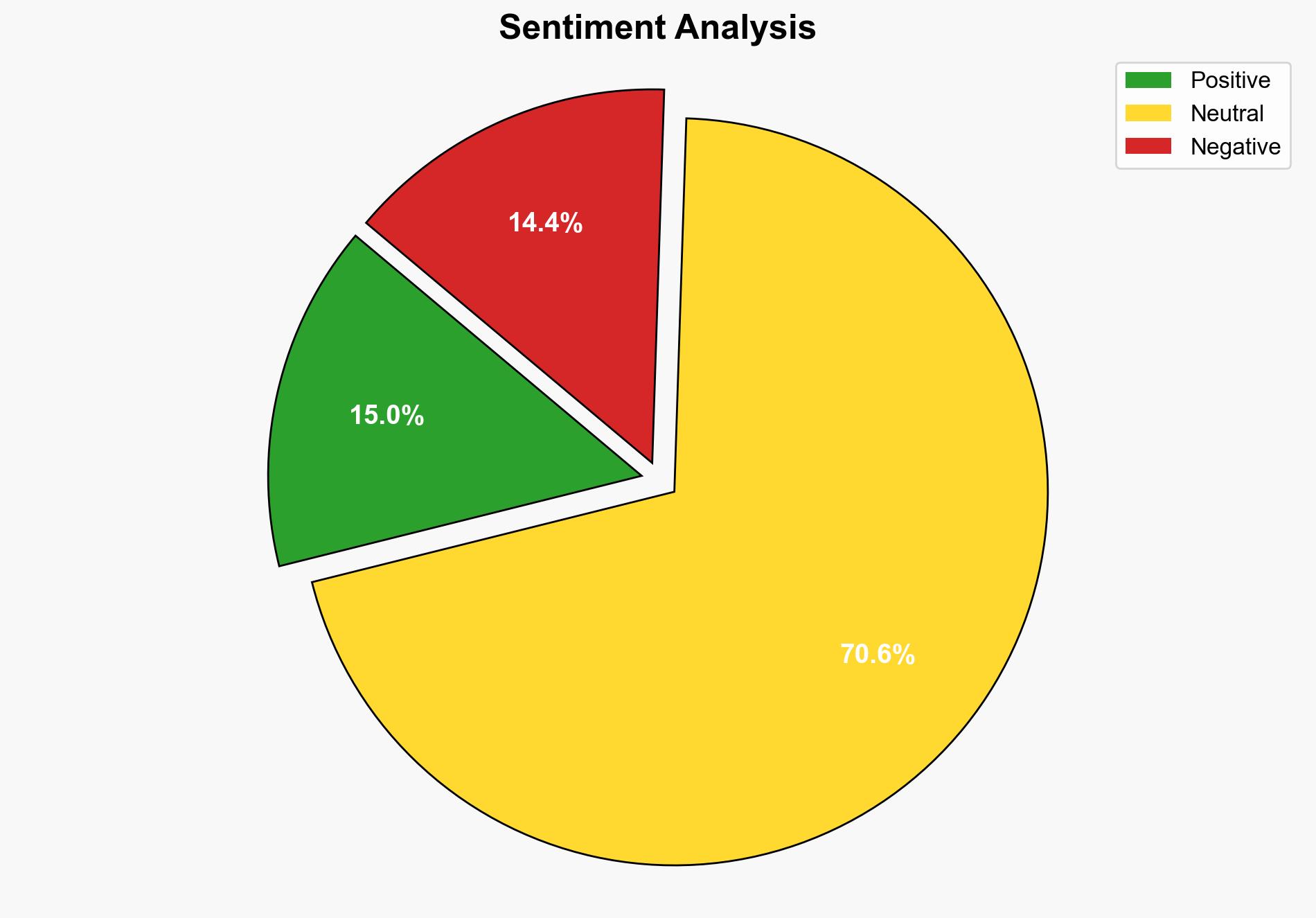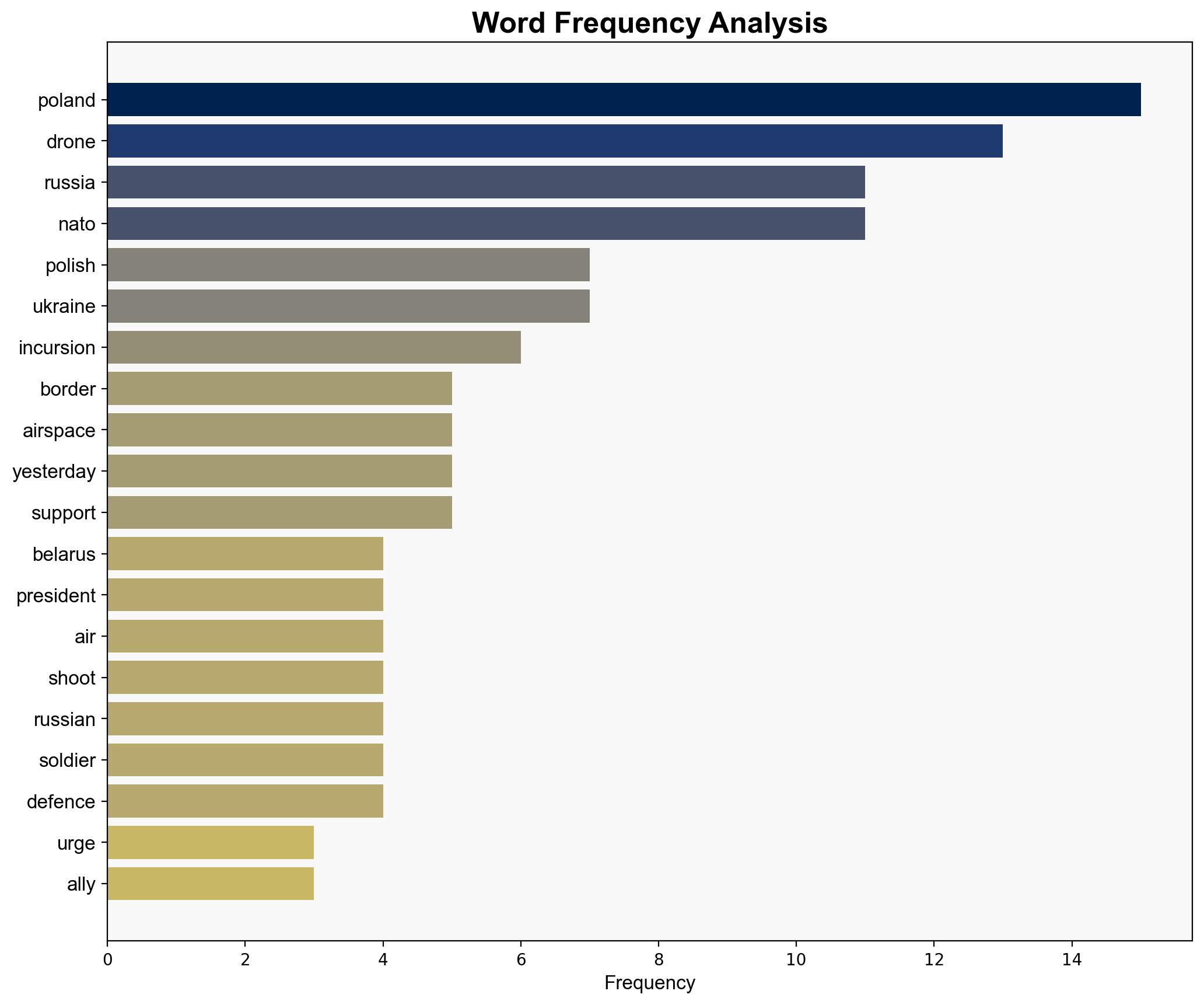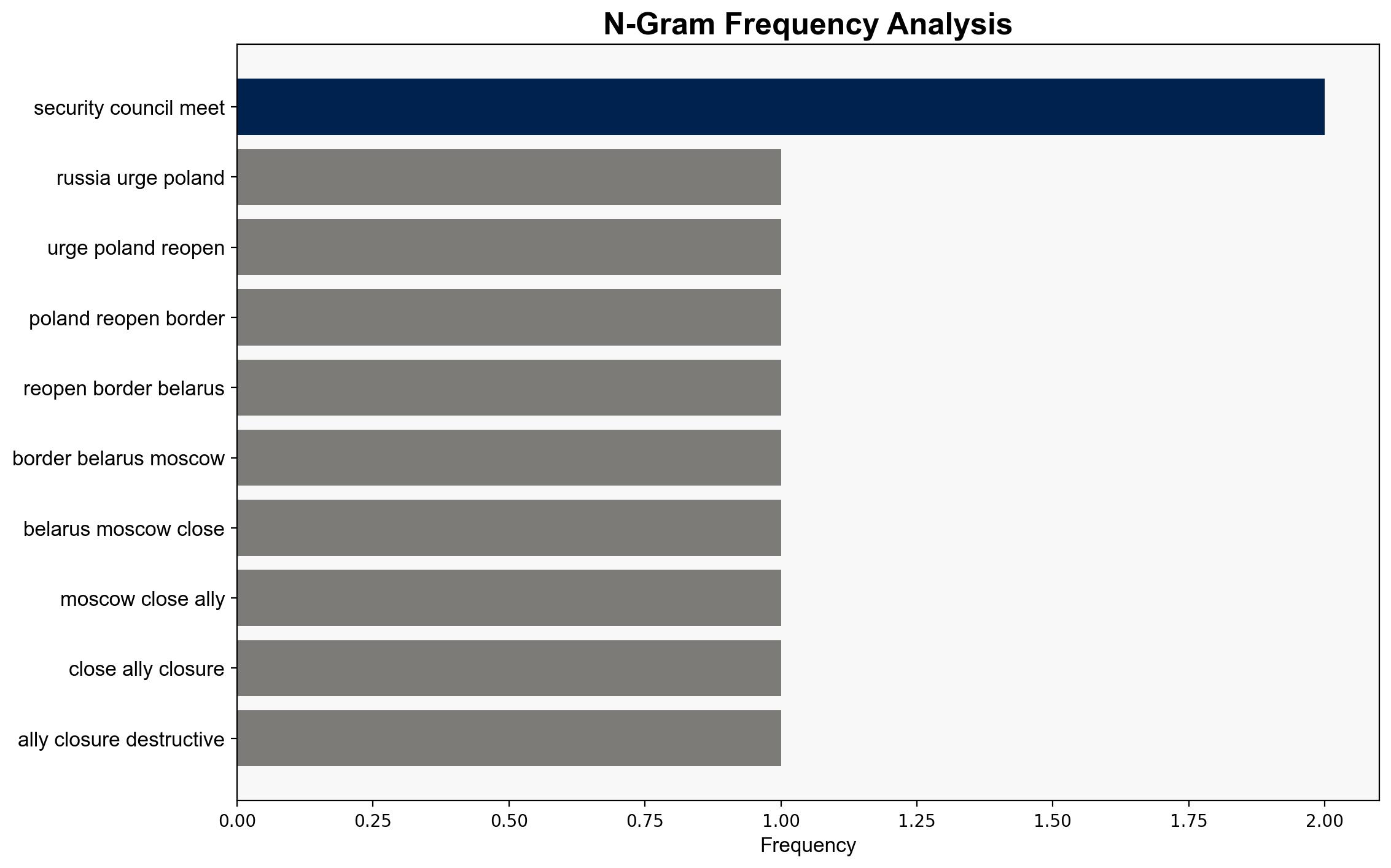UN Security Council to meet on drone incursions – Poland – RTE
Published on: 2025-09-11
Intelligence Report: UN Security Council to meet on drone incursions – Poland – RTE
1. BLUF (Bottom Line Up Front)
The most supported hypothesis is that the drone incursions are a deliberate Russian provocation to test NATO’s response capabilities and unity. Confidence level: Moderate. Recommended action: Strengthen NATO’s eastern defenses and pursue diplomatic channels to de-escalate tensions while preparing for potential sanctions against Russia.
2. Competing Hypotheses
1. **Deliberate Provocation by Russia**: The drone incursion is a calculated move by Russia to test NATO’s response and cohesion, potentially seeking to exploit any weaknesses or divisions within the alliance.
2. **Unintentional Incident**: The drone incursion was an accidental breach due to technical failure or miscommunication, not intended as a provocation by Russia.
3. Key Assumptions and Red Flags
– **Assumptions**:
– Hypothesis 1 assumes Russia has strategic interest in testing NATO’s response.
– Hypothesis 2 assumes technical failures are plausible given the complexity of drone operations.
– **Red Flags**:
– Lack of immediate Russian admission or denial of the incident raises suspicion.
– The timing of the incursion coinciding with heightened tensions in the region.
– **Blind Spots**:
– Limited information on the drone’s origin and control mechanisms.
– Potential bias in interpreting Russian intentions based on historical actions.
4. Implications and Strategic Risks
– **Geopolitical**: Increased tensions could lead to further military build-up along NATO’s eastern flank, risking escalation.
– **Economic**: Potential sanctions against Russia could impact European energy markets and broader economic relations.
– **Cybersecurity**: Heightened risk of cyber operations targeting critical infrastructure in response to increased military posturing.
– **Psychological**: The incident may erode public confidence in NATO’s ability to protect member states, particularly in Eastern Europe.
5. Recommendations and Outlook
- **Mitigation**: Enhance surveillance and air defense systems in Eastern Europe to prevent future incursions.
- **Diplomacy**: Engage in dialogue with Russia through backchannels to clarify intentions and reduce miscalculations.
- **Sanctions**: Prepare targeted sanctions that minimize collateral damage to European economies.
- **Scenario Projections**:
– **Best Case**: Diplomatic resolution with Russia agreeing to transparency in military exercises.
– **Worst Case**: Escalation leading to military confrontation or cyberattacks.
– **Most Likely**: Continued low-level provocations with periodic diplomatic engagements.
6. Key Individuals and Entities
– Maria Zakharova
– Karol Nawrocki
– Donald Tusk
– Zygimantas Pavilionis
7. Thematic Tags
national security threats, cybersecurity, counter-terrorism, regional focus





